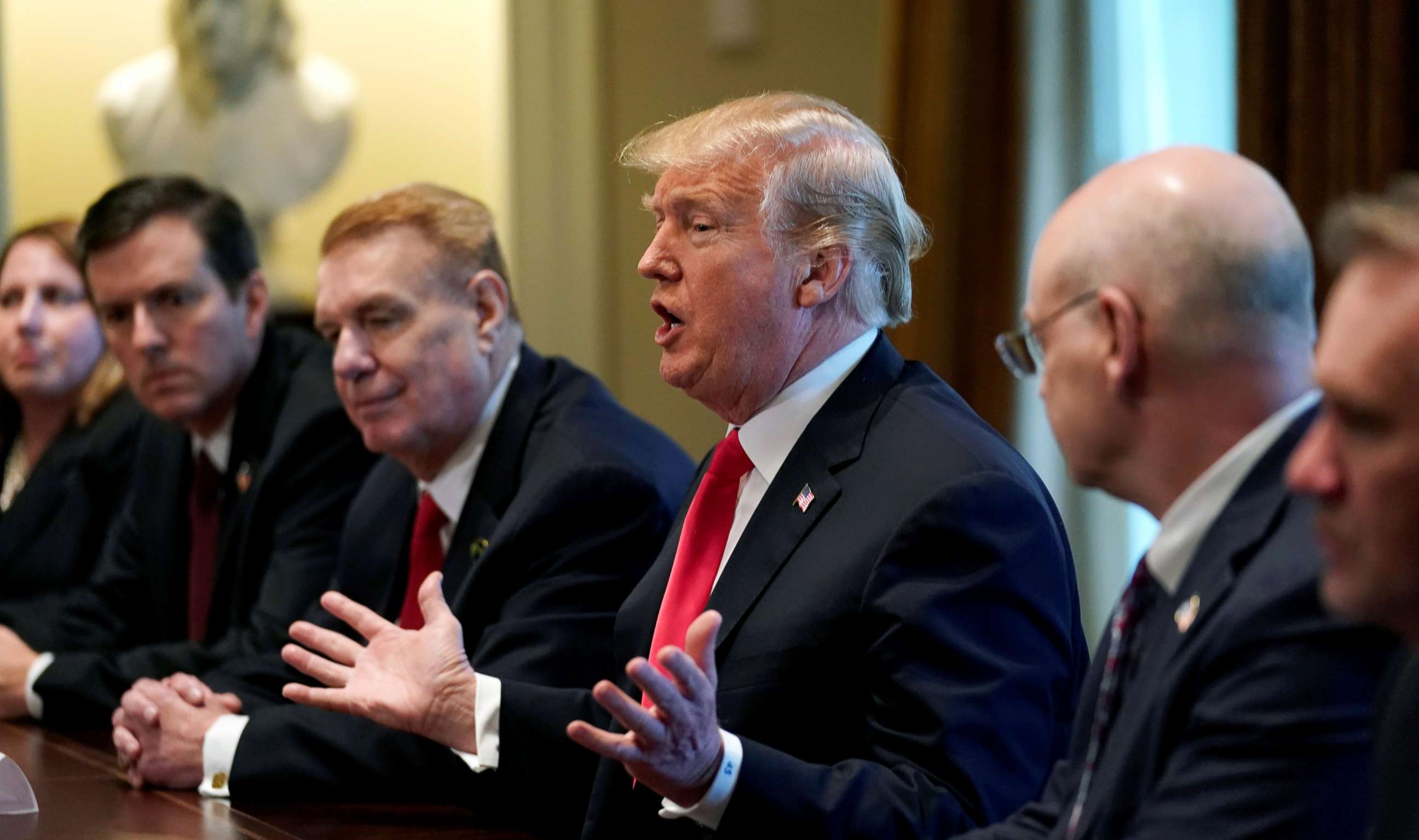Non-partisan group predicts Trump tariffs would cost 146,000 jobs
President Trump has proposed taxing steel and aluminum imports.
A new economic analysis of President Trump's proposed trade tariffs on steel and aluminum appears to paint a grim picture of the consequences -- some 146,000 jobs lost, according to a recent analysis.
The Trade Partnership, a non-partisan pro-trade group, released a report Monday predicting that there will be a net loss of thousands of jobs if the proposed tariffs on aluminum and steel are applied on imports from all countries.
The move to impose tariffs has drawn fire from lawmakers on both sides of the aisle, including House Speaker Paul Ryan, R-Wis., who suggested that there has to be a "smarter way" to combat steel and aluminum dumping by countries like China.
A report put out by the Trade Partnership, which is also a consulting firm that does research on international trade, predicts that while there will be an increase in aluminum- and steel-based jobs in the U.S. because of increased demand; that jump would be far smaller than the number of jobs that would be lost in other sectors as a result of the increased cost of working with steel and aluminum.
The Trade Partnership puts the number of jobs expected to be gained at 33,464 and the jobs lost at 179,334, resulting in the net loss of 145,870 jobs.
In summary, the report states that more than five jobs would be lost for every one job gained.

The job losses would involve a number of different sectors, including agriculture, energy, food and textile manufacturing, and various forms of construction.
"While employment increases in sectors making steel and aluminum, it declines in every other sector of the U.S. economy," the report states.
The tariffs were initially proposed by Trump last week, who initially suggested a 10 percent tariff on imported aluminum and a 25 percent tariff on imported steel, though the details are still open to change. Just yesterday, Trump tweeted that the tariffs on steel and aluminum "will only come off if new & fair NAFTA agreement is signed," suggesting that if negotiations happen over the North American Free Trade Agreement then Canada and Mexico may not be subject to the tariffs.
Edward Alden, a senior fellow at the Council on Foreign Relations specializing in international trade, also predicted a net loss of jobs last week when the tariffs were first proposed.
"This should be a hard one for the president – he campaigned on bringing back good manufacturing jobs, and while the tariffs will help create some good manufacturing jobs in steel and aluminum production, they will eliminate many others. I’m not sure on what criteria the president will decide which sorts of jobs he favors," Alden told ABC News today.
Trump's commerce secretary, Wilbur Ross, defended the president's move last Sunday, telling ABC News' Chief Anchor, George Stephanopoulos that "the notion that it would destroy a lot of jobs, raise prices, disrupt things is wrong."
“The total amount of tariffs we're putting on is about $9 billion a year. That's a fraction of 1 percent of the economy," Ross added.
And Ross suggested that if Europe retaliates, it would only be a small fraction of the U.S. economy.
"It's some $3 billion of goods that the Europeans have threatened to put something on," he added. "Well, in our sized economy, that's a tiny, tiny fraction of 1 percent. So while it might affect an individual producer for a little while, overall it's not going to be much more than a rounding error.”
Trump also has defended the move. "We’re going to build our steel industry back, we’re going to build our aluminum industry back," he said Monday.




